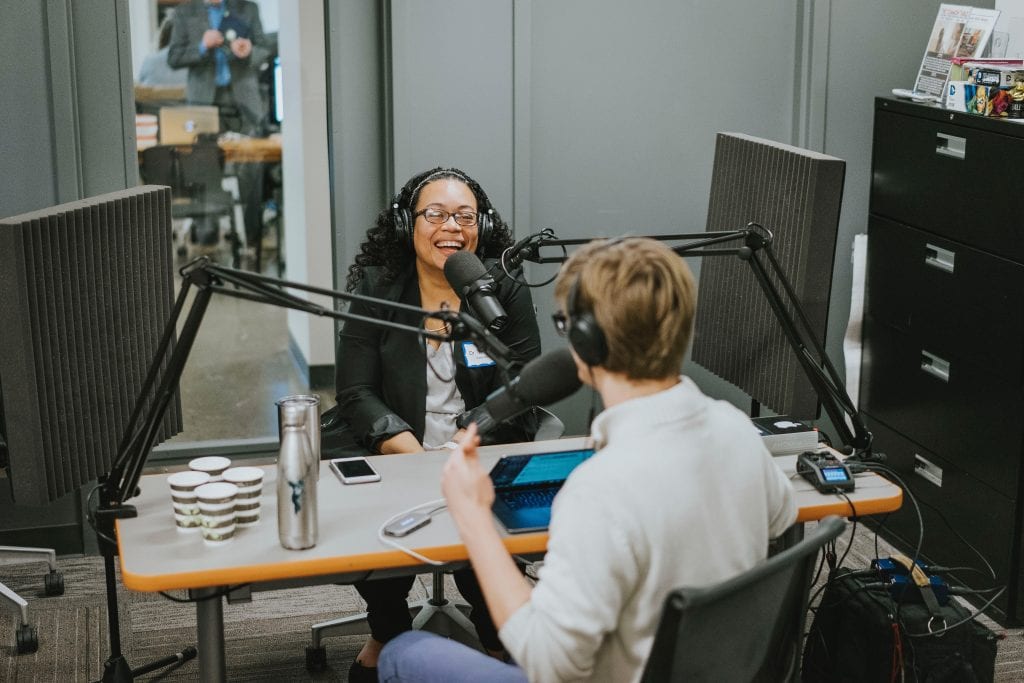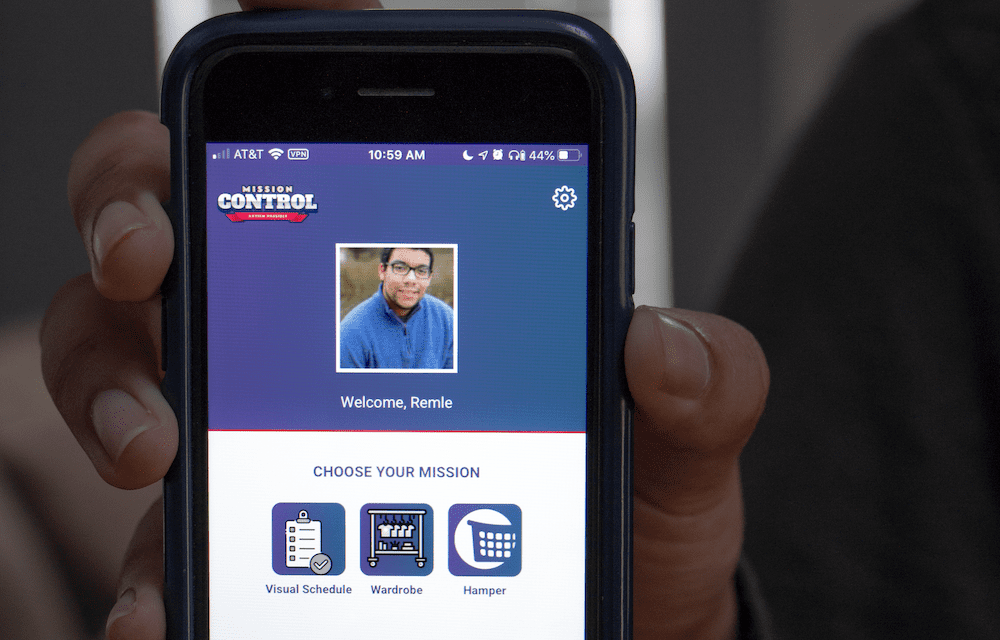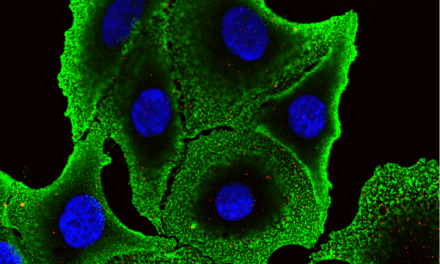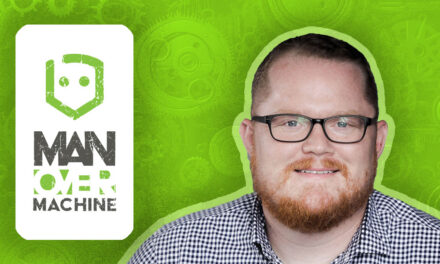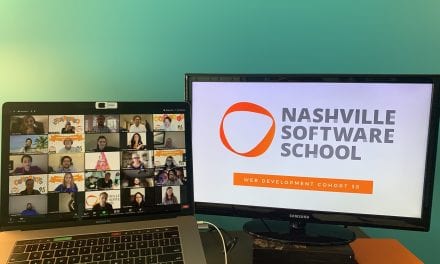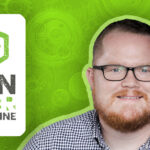Recent statistics regarding the quality of life for young people with autism are not good. According to the American Psychological Association, 1 in 68 children in the U.S. will be diagnosed with autism spectrum disorder, according to the most recent estimate from the Centers for Disease Control and Prevention. 50,000 autistic people turning 18 every year and having to take care of themselves. 26 percent of young autistic adults are not getting assistance to help them find a job. And 37 percent of autistic people in their 20s are not holding a job or continuing their education. The costs for care of an individual with autism can range between $1.4 million and $2.4 million, depending on whether the individual has another disability. The projected total costs of care for all people with autism spectrum disorder barring widespread access to treatment or services will be $461 billion by 2025. The Atlantic says that this is “a coming care crisis.”
It’s a problem that researchers from the A.J. Drexel Autism Institute at Drexel University refer to as “services cliff,” in which people with autism age out of the system, with a speck of hope, stating “The creation of effective transition planning and programming to meet the needs of the 50,000 individuals with autism who leave high school each year – each with unique strengths, interests, and challenges – is an urgent task facing our society. It is solvable, though. As 2.2 percent of American adults may have autism, the worry of “Can an autistic adult live on their own?” becomes relevant to approximately 5.4 million people in the United States, along with a flock of other worries. “How comfortable will they be as an adult?”, “Are they able to do their chores?”, or a darker thought like “What if there’s an emergency?” can descend on parents already fraught with their stresses.
These are familiar concerns for Dr. Teresa Vasquez; a software engineer, educator, researcher of autism and technology, and mother of an adult autistic son. She’s both meditated on the thought of her autistic son living alone and let it guide her startup venture Autism Possible. She saw the need for her business with her son’s diagnosis of autism about 16 years ago. With her husband also working in education, the family saw that their son’s needs would require a fresh solution made to the specifications of someone on the spectrum.
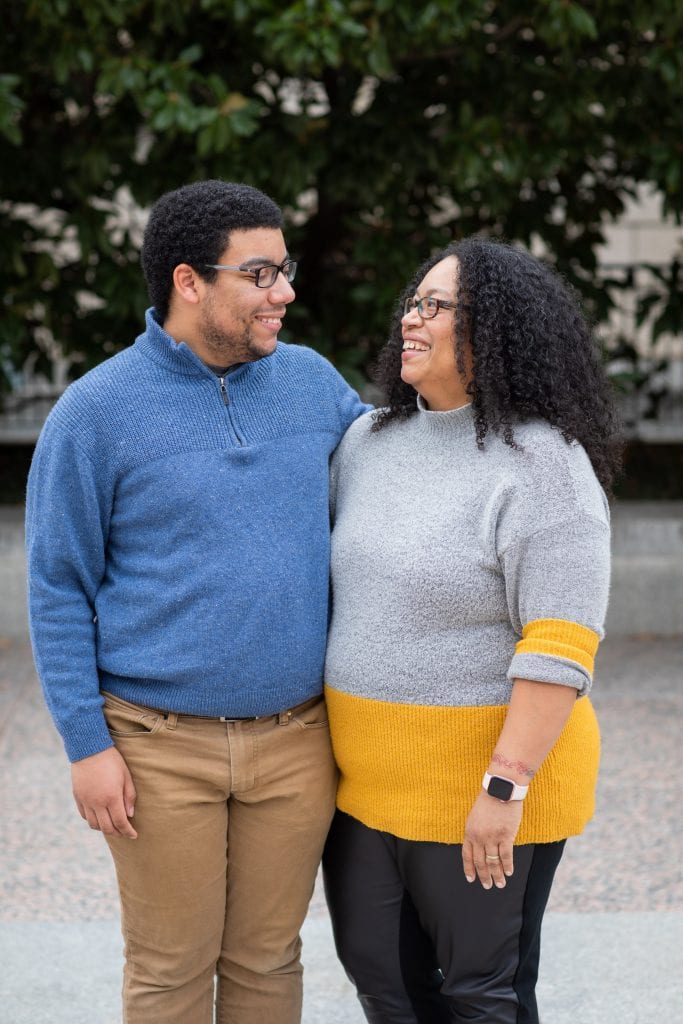
“So we found out really early on that the educational system was wanting to work with us,” Dr. Vasquez tells Launch Engine. “But we had to advocate for ourselves… the educational system is overloaded… It’s kind of like, one person covering multiple schools. And we realized really, really early that we’re going to have to advocate for him and come up with ideas ourselves that we could bring to the table. Just kind of amplify our own voices. Because what they don’t tell you is that you are probably the most important of the team when you’re the family member, parent, or guardian. And most parents approach special education a little differently. So, it took us some time, some energy to kind of learn, you know, how to advocate. Not only just for our kid but also for other kids like my son.”
With the help of her husband and her three daughters (one of whom helped build the software foundation for Autism Possible), Dr. Vasquez was able to take care of her son’s needs. But not every autistic person will be so fortunate to have a big family. And, if they’re an autistic adult looking for privacy and independence, the thought of a helicopter guardian will probably make them uncomfortable.
Thinking about how she could turn her efforts of promoting neurodiversity into a sustainable business, Dr. Vasquez reflected on the experiences she had earned speaking at conferences, talking to other parents and educators, and the trials and tribulations she had overcome as a parent. All three of those perspectives had shone a light on a universal truth.
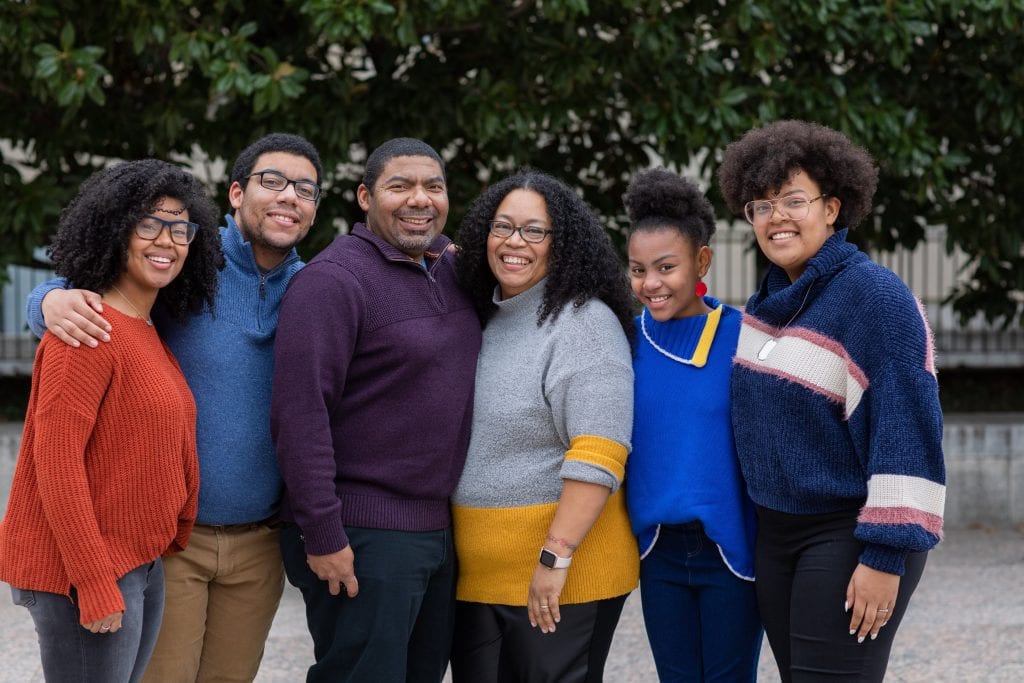
She says, “Over the years, what we found is that my son really did well when we empowered him. When we made him feel like a superhero. And so, we had started about ten years ago with… this superhero motif of ‘You are your hero. What do you need?’ You know? ‘You have to open your mouth and speak to us and communicate with us to let us know.’ I became an advocate for other people; I would go to their team meetings and advocate on their behalf. I noticed that whenever you started to empower families, like let them know that they actually are their own heroes, that… it’s like a light switch flipped.”
Seeing that the superhero motif was the right choice, Dr. Vasquez came up with the business concept of Autism Possible over three years ago as she was working on her doctoral research program. This concept first served as a free content creator with a podcast and educational email courses for anyone else whose family’s journey paralleled theirs. She shares “So if he can benefit from this, then I believe the community at large can probably benefit from this as well.”
The videos, articles, and podcasts, are still part of the Autism Possible software, but they’re no longer the primary feature. Figuring that it would be best to “meet everybody where they are,” the Autism Possible platform moved to a two-part setup dubbed “Mission Control.” The Family Command Center is a customizable dashboard that helps the entire family keep track of their daily or weekly goals. Using Dr. Vasquez’s family as an example, if her three daughters have tasks or chores that relate to helping their brother, the whole family’s progress can be tracked. The Notifications Center sends and receives reminders to anyone using the software so that they can be reminded to complete a task whenever necessary. And the Report Center acts almost like a digital filing cabinet, storing documents and reports needed for important events. The dashboard also integrates with other applications and can link up to other members of the community using the software.
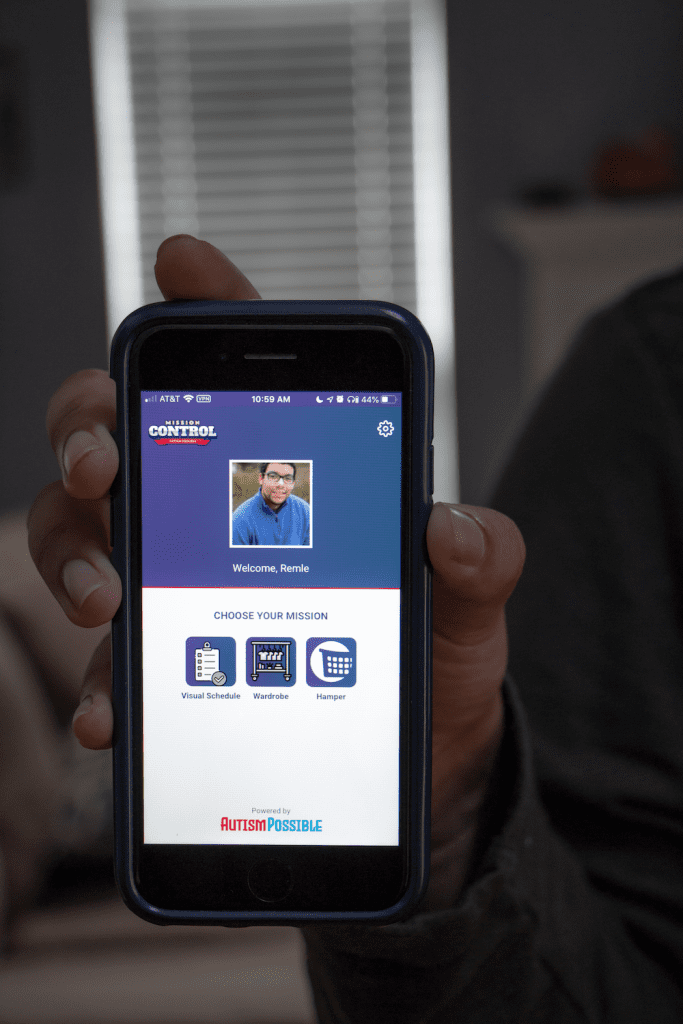
Dr. Vasquez adds that she wanted to help as many families as possible, regardless of socioeconomic status, as some software tools currently on the market have a power that their predecessors did not. “We’re trying to build innovations that can be worked inside of a high-tech platform or outside, just by using simple SMS text messaging,” she says. “The black population might now have access to computers or smart devices, but over 90 percent have access to cell phones.”
She says that the need for empowering autistic people and their families is necessary because “sometimes it feels like the world is against you,” and that Autism Possible wants to change that. There’s often a sense of shame that autistic people feel is specific to them, and offering her son’s story, she says that he initially didn’t want anyone to know that he was autistic. Dr. Vasquez expresses that that’s actually a spectrum-centric expression of a problem almost everyone faces and that people don’t really want others to know their shortcomings. She offers, “Not just for the autism community, but all of us. None of us want to wear our weaknesses on our sleeve. We want to put forth our best effort, and we want our strengths to kind of come about. But the reality is, autistic adults have to be willing to share that they do have some kind of deficiencies. And I do too. I’m not autistic, but I share with my team openly my weaknesses so that hopefully I can gain better footing and learn more.” She goes on to say that people could learn to acknowledge their weaknesses, as it makes them stronger and brings power to the relationships that people build by adding authenticity.
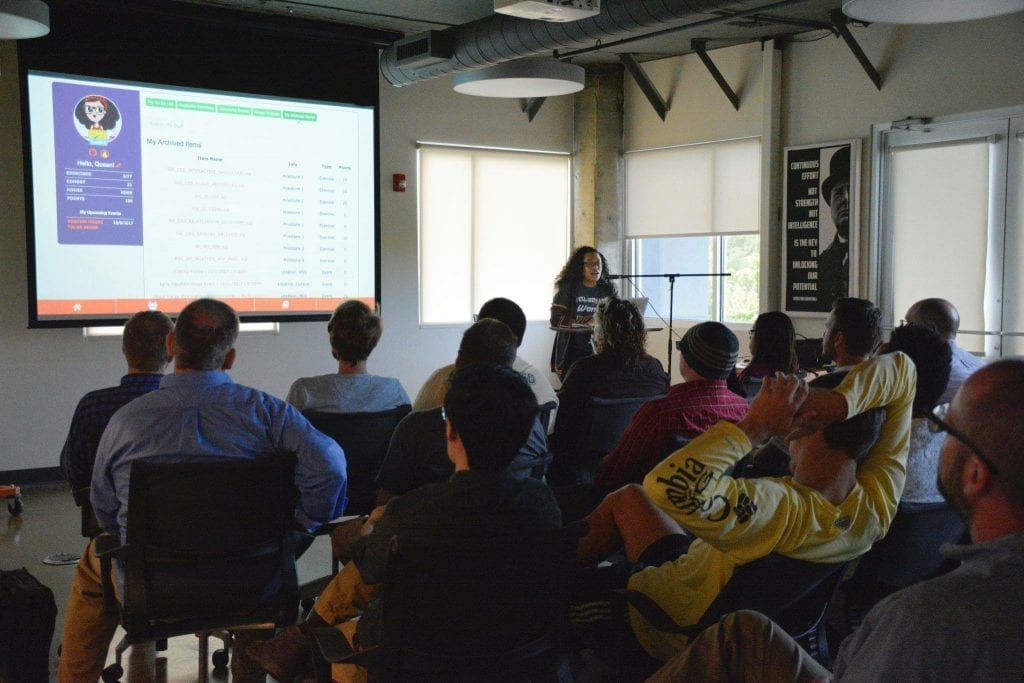
Dr. Vasquez sees the need for her software in more professional settings as well, since financial barriers may have prevented companies from accommodating the needs of autistic employees. Tasks that aren’t totally laid out (instead, having instructions with small degrees of variation), might cause stress to an autistic employee. But with Mission Control, the instructions can be changed to match the specific details so that the employee can do their best work. She says, “Businesses, organizations, everyone should be able to cater to the needs of this neurodiverse population. Because not only do they bring excellent qualities, excellent work ethic, and skillsets, we also believe that in the workplace they should be able to have the tools and services they need in order to do a great job.”
Autism Possible will also be able to help users with social events. If a user needs a prompt, for instance, if they don’t know what to say in a social setting, then Mission Control can tell them what would be appropriate. Dr. Vasquez shares that, at the time of writing, she’s currently looking at the use of artificial intelligence and machine learning. It should be noted that artificial intelligence and machine learning are already showing promise in other areas of autism research.
As of this writing, Autism Possible is currently enrolled in the Nashville Entrepreneur Center’s Project Healthcare business accelerator. For further information about Autism Possible, be sure to visit the business’s website and social media.
